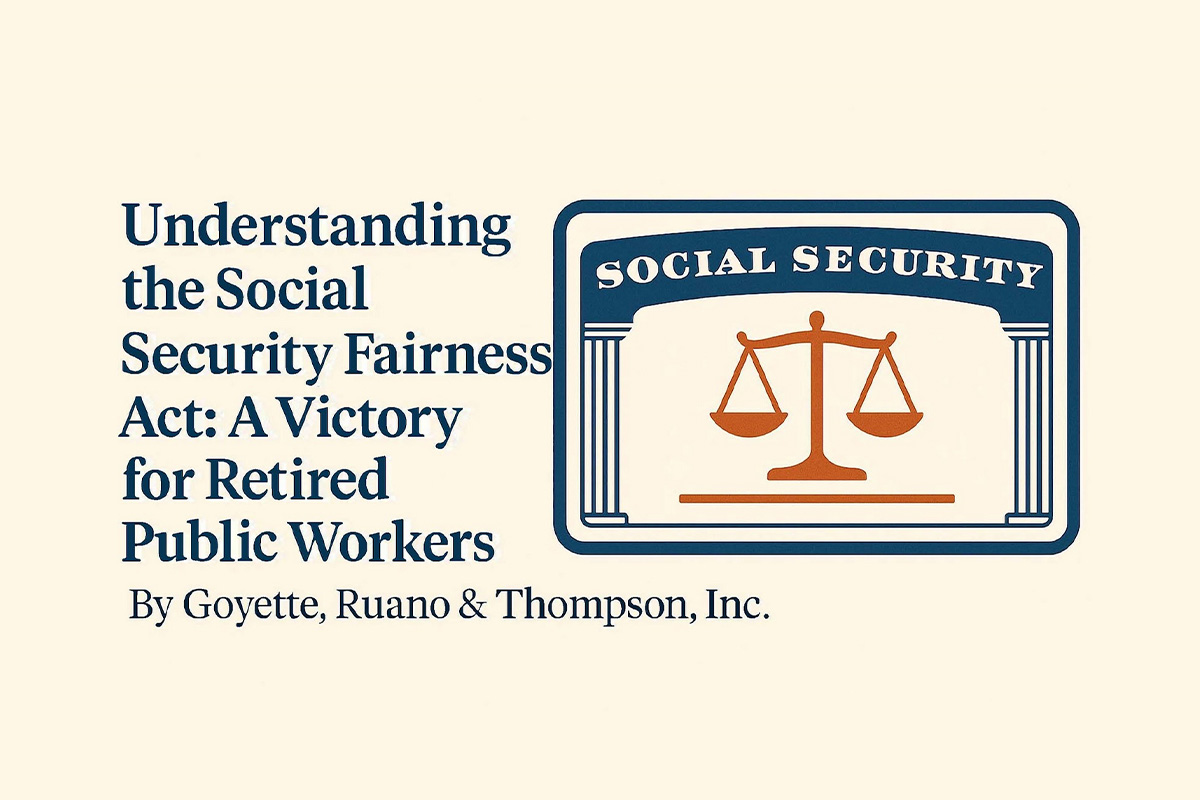For years, the people who have kept our communities running—teachers, police officers, firefighters, emergency medical personnel, and other public employees—have faced frustrating and often unfair cuts to their Social Security benefits. Even though many of them worked second jobs, paid into the system, and earned those benefits just like everyone else, two outdated federal rules have chipped away at what they were entitled to receive in retirement.
Now, that’s finally changing.
The Social Security Fairness Act is a big step toward righting those wrongs. It puts an end to decades of financial penalties that hurt the very people who spent their lives serving others. If you or someone you know worked in public service and has also paid into Social Security through other jobs, this new law could make a real difference.
Let’s take a closer look at what’s changed—and what you should do next.
How We Got Here: Why Public Workers Were Losing Benefits
Two little-known federal rules have been the root of the problem for a long time: the Windfall Elimination Provision (WEP) and the Government Pension Offset (GPO).
The Windfall Elimination Provision (WEP)
The WEP was created in the early 1980s, supposedly to prevent “double-dipping.” The idea was to adjust Social Security benefits for people who earned a public pension and also qualified for Social Security—usually because they had a private sector job at some point in their career.
But the formula used to calculate this so-called adjustment has always been deeply flawed. Instead of being fair, it ended up penalizing workers who paid into Social Security just like everyone else. Some retirees lost hundreds of dollars every month, even though they had worked and contributed just as much—or more—than others receiving full benefits.
The Government Pension Offset (GPO)
The GPO added insult to injury by targeting spousal and survivor benefits. If you were married and received a public pension, you could lose all or most of the Social Security benefits you would normally get based on your spouse’s work history.
This rule hit widows and widowers especially hard, often at the worst time in their lives—when they were grieving and trying to keep things together financially.
What the Social Security Fairness Act Does
After years of advocacy from public workers, unions, and retiree groups, the Social Security Fairness Act was passed—and it’s a game-changer.
Here’s what the new law does:
- It eliminates the WEP and GPO entirely. That means no more unfair reductions in benefits just because someone worked in the public sector.
- It restores full Social Security payments to those who earned them, regardless of whether they also receive a public pension.
- It protects spouses and families, allowing them to collect the survivor or spousal benefits they were originally promised.
For retired police officers, firefighters, teachers, and EMTs—and their families—this law is more than just a financial win. It’s long-overdue recognition of their service.
What You Should Do Next
If you’ve been affected by the WEP or GPO, now is the time to take a closer look at your Social Security record and benefits.
Here’s a quick checklist:
- Log in to your Social Security account
Go to www.ssa.gov and sign in to your My Social Security account. If you don’t have one, it’s easy to set up. - Review your earnings history and benefits
Check your payment estimates to see if anything has changed since the law passed. Updates may take time to process, but it’s good to be proactive. - Get help if you need it
If you’re unsure what your benefits should look like now—or if you’ve never fully understood how the WEP or GPO impacted you—talk to a trusted advisor. Our team at Goyette, Ruano & Thompson is always here to help. - Spread the word
This law won’t be on everyone’s radar yet. If you know someone who worked in the public sector and has also paid into Social Security, let them know about these changes. It could make a real difference in their retirement.
Why This Matters
Public service isn’t just a job—it’s a calling. It means showing up every day to keep people safe, educate the next generation, or respond to emergencies, often with little recognition and modest pay. The least we can do as a society is make sure these workers aren’t shortchanged in retirement.
The Social Security Fairness Act helps do just that. It restores fairness, boosts financial security, and sends a clear message: we value your service.
How We Can Help
At Goyette, Ruano & Thompson, we’ve been standing up for public employees for over 30 years. Our firm understands how retirement benefits work—and how complex they can be, especially when federal and state systems overlap.
If you have questions about how this new law affects your retirement, or you want to make sure you’re getting everything you’re entitled to, we’re just a phone call or email away. We’re here to help you navigate the system, fight for what’s fair, and make sure your retirement years are as secure as they should be.
Final Thoughts
For too long, public sector retirees were asked to accept less. Less money. Less recognition. Less fairness.
But no more.
The Social Security Fairness Act is proof that persistence pays off—and that justice for public servants is still possible. If you’ve been affected, now is the time to learn more, take action, and get the benefits you’ve rightfully earned.
Have questions? We’re here to help. Contact Goyette, Ruano & Thompson today and let us stand with you.

